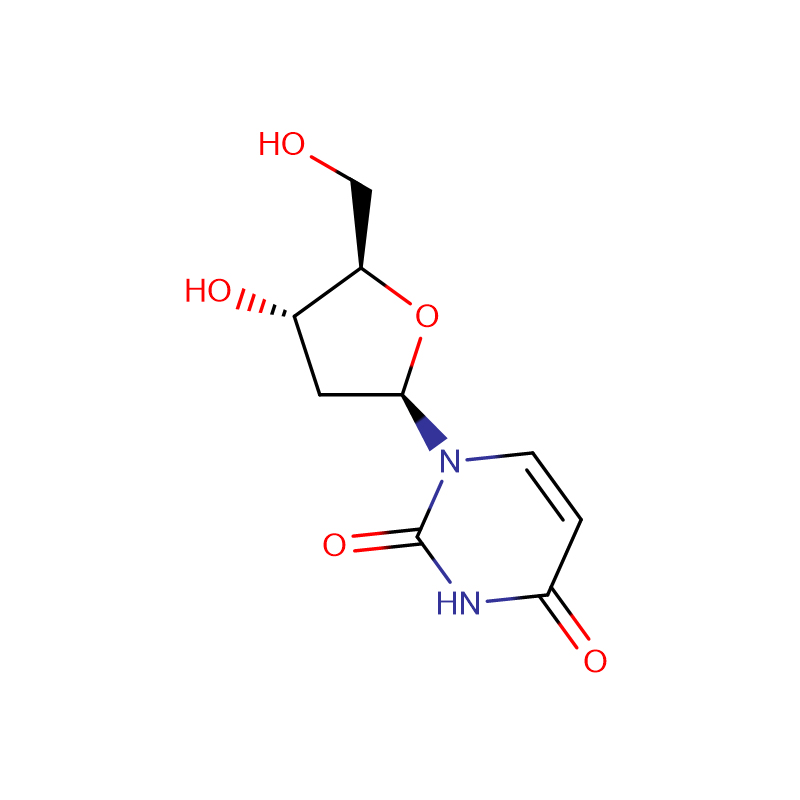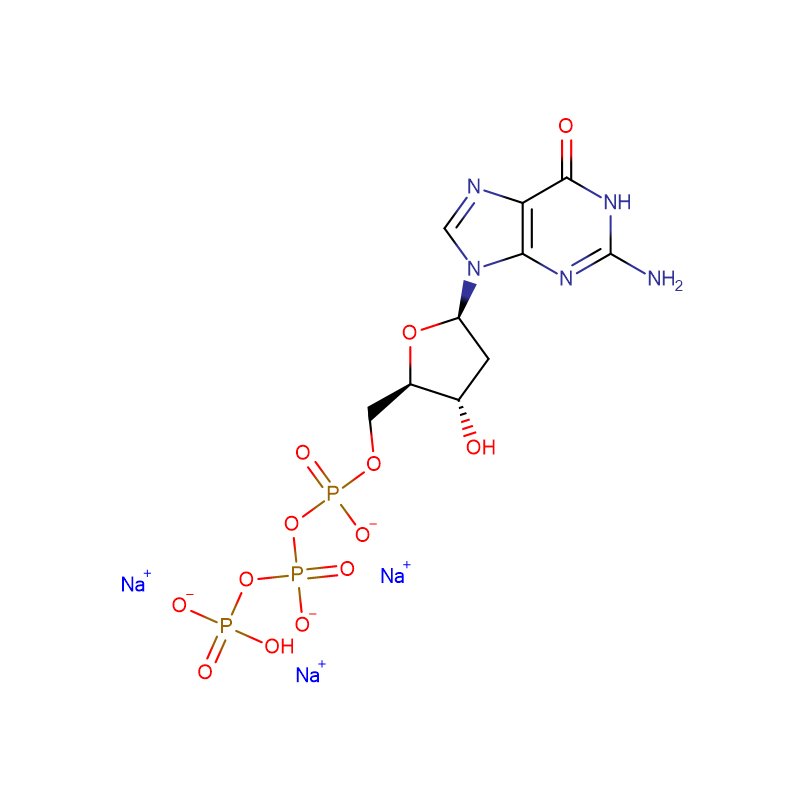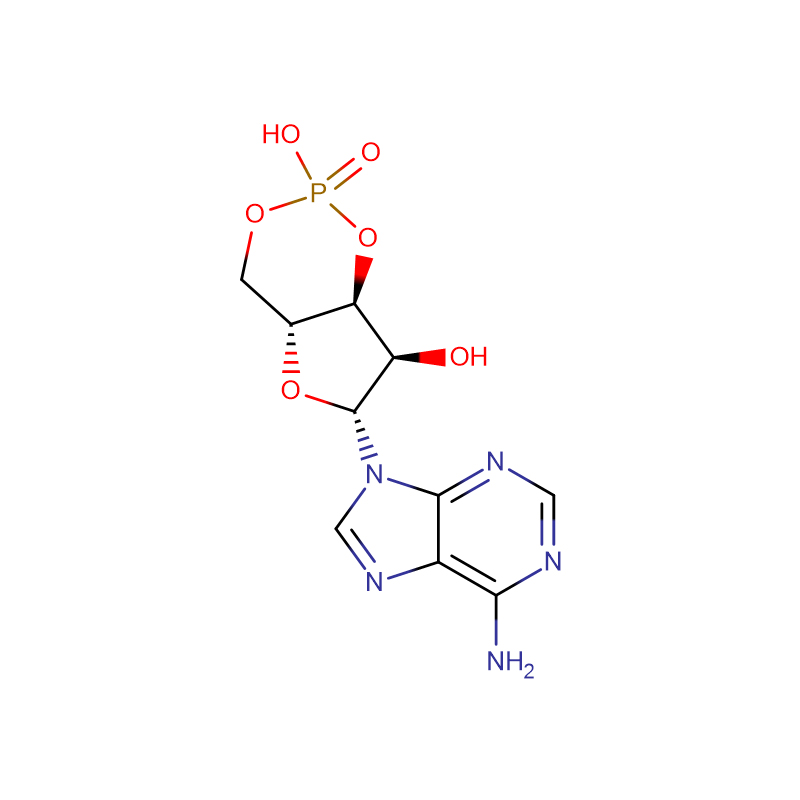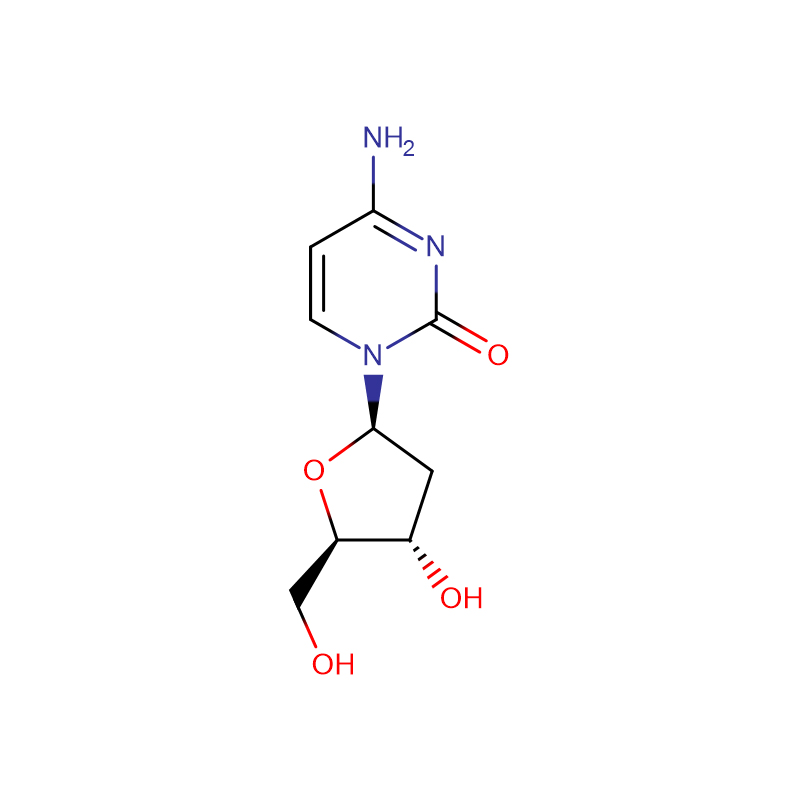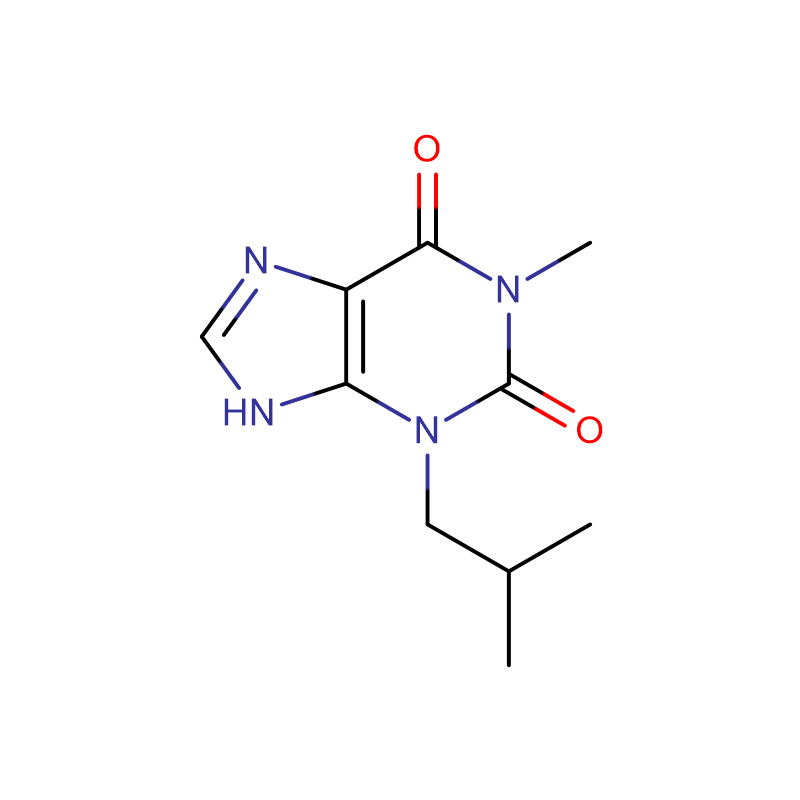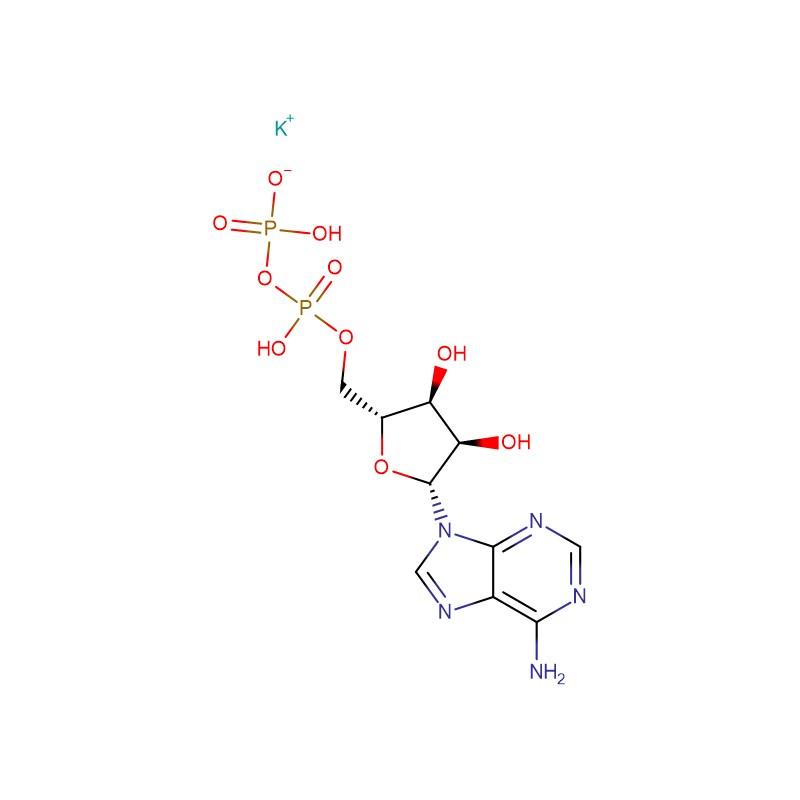2′-Deoxyuridine Cas:951-78-0
| Catalog Number | XD90583 |
| Product Name | 2'-Deoxyuridine |
|
CAS |
951-78-0 |
|
Molecular Formula |
C9H12N2O5 |
|
Molecular Weight |
228.20 |
| Storage Details | 2 to 8 °C |
| Harmonized Tariff Code | 29349990 |
Product Specification
| Appearance | White to off-white powder |
| Assay | 99% |
| Melting Point | 164 - 168 Deg C |
| Loss on Drying | <1.0% |
| Residue on Ignition | <0.1% |
Improved nitrogen utilization in cattle is important in order to secure a sustainable cattle production. As purines and pyrimidines (PP) constitute an appreciable part of rumen nitrogen, an improved understanding of the absorption and intermediary metabolism of PP is essential. The present work describes the development and validation of a sensitive and specific method for simultaneous determination of 20 purines (adenine, guanine, guanosine, inosine, 2'-deoxyguanosine, 2'-deoxyinosine, xanthine, hypoxanthine), pyrimidines (cytosine, thymine, uracil, cytidine, uridine, thymidine, 2'-deoxyuridine), and their degradation products (uric acid, allantoin, β-alanine, β-ureidopropionic acid, β-aminoisobutyric acid) in blood plasma of dairy cows. The high performance liquid chromatography-based technique coupled to electrospray ionization tandem mass spectrometry (LC-MS/MS) was combined with individual matrix-matched calibration standards and stable isotopically labelled reference compounds. T he quantitative analysis was preceded by a novel pre-treatment procedure consisting of ethanol precipitation, filtration, evaporation and reconstitution. Parameters for separation and detection during the LC-MS/MS analysis were investigated. It was confirmed that using a log-calibration model rather than a linear calibration model resulted in lower CV% and a lack of fit test demonstrated a satisfying linear regression. The method covers concentration ranges for each metabolite according to that in actual samples, e.g. guanine: 0.10-5.0 μmol/L, and allantoin: 120-500 μmol/L. The CV% for the chosen quantification ranges were below 25%. The method has good repeatability (CV%≤25%) and intermediate precision (CV%≤25%) and excellent recoveries (91-107%). All metabolites demonstrated good long-term stability and good stability within-runs (CV%≤10%). Different degrees of absolute matrix effects were observed in plasma, urine and milk. The determination of relative matrix effects revealed that the method was suitable for almost all examined PP metabolites in plasma drawn from an artery and the portal hepatic, hepatic and gastrosplenic veins and, with a few exceptions, also for other species such as chicken, pig, mink, human and rat.


